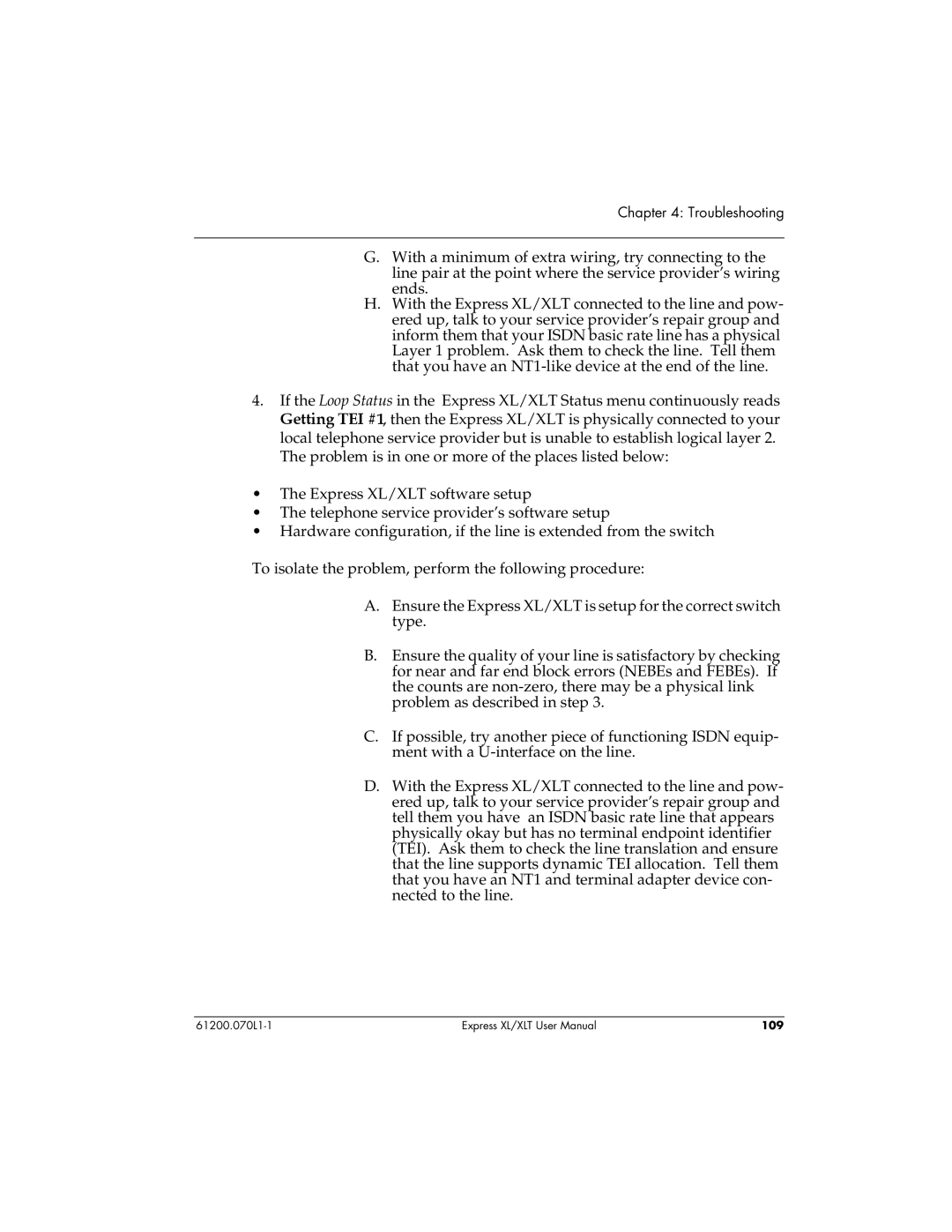
Chapter 4: Troubleshooting
G.With a minimum of extra wiring, try connecting to the line pair at the point where the service provider’s wiring ends.
H.With the Express XL/XLT connected to the line and pow- ered up, talk to your service provider’s repair group and inform them that your ISDN basic rate line has a physical Layer 1 problem. Ask them to check the line. Tell them that you have an
4.If the Loop Status in the Express XL/XLT Status menu continuously reads Getting TEI #1, then the Express XL/XLT is physically connected to your local telephone service provider but is unable to establish logical layer 2. The problem is in one or more of the places listed below:
•The Express XL/XLT software setup
•The telephone service provider’s software setup
•Hardware configuration, if the line is extended from the switch
To isolate the problem, perform the following procedure:
A.Ensure the Express XL/XLT is setup for the correct switch type.
B.Ensure the quality of your line is satisfactory by checking for near and far end block errors (NEBEs and FEBEs). If the counts are
C.If possible, try another piece of functioning ISDN equip- ment with a
D.With the Express XL/XLT connected to the line and pow- ered up, talk to your service provider’s repair group and tell them you have an ISDN basic rate line that appears physically okay but has no terminal endpoint identifier (TEI). Ask them to check the line translation and ensure that the line supports dynamic TEI allocation. Tell them that you have an NT1 and terminal adapter device con- nected to the line.
Express XL/XLT User Manual | 109 |
